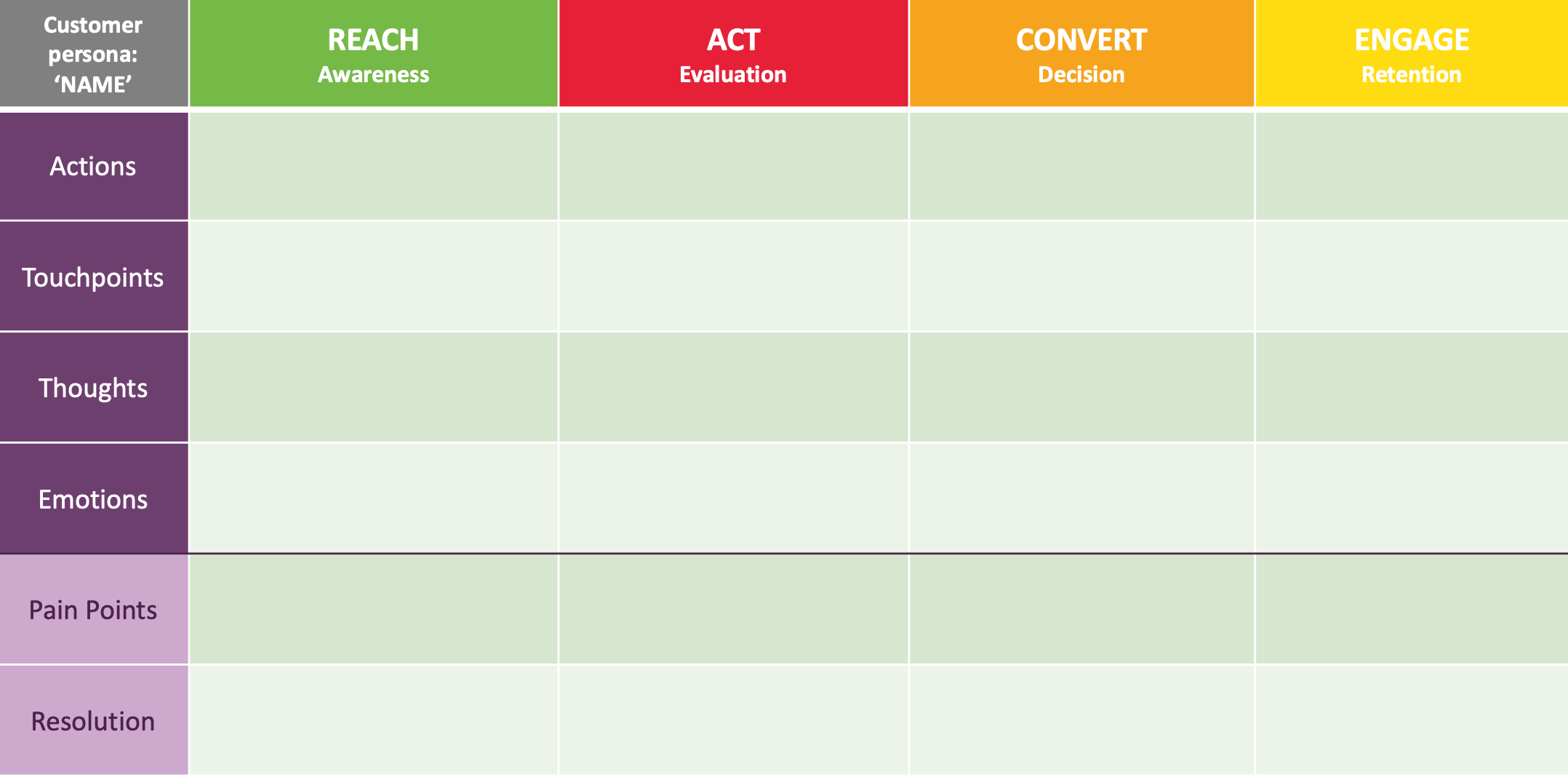Spring 2025 Grads: How to Spot and Avoid Job Search Scams
Graduation season is both exciting and overwhelming — and for many students, the job hunt can quickly shift from thrilling to frustrating. Each spring, I hear stories from students and recent graduates who are excited to finally receive a callback — sometimes with an immediate offer — only to find out the job isn’t what […] The post Spring 2025 Grads: How to Spot and Avoid Job Search Scams first appeared on PRsay.

Graduation season is both exciting and overwhelming — and for many students, the job hunt can quickly shift from thrilling to frustrating.
Each spring, I hear stories from students and recent graduates who are excited to finally receive a callback — sometimes with an immediate offer — only to find out the job isn’t what was promised. And I’m not just talking about complaints about the typical “pay your dues” entry-level mundane tasks. I’m seeing an increase in misleading job descriptions, unethical hiring practices and outright scams.
In my efforts to help combat this growing issue, I regularly share job search tips for young professionals—how to research and land paid internships and entry-level PR or marketing roles, and just as important, how to spot and avoid first-job scams.
This year’s job market is especially challenging for new graduates. Industry consolidation, widespread layoffs at top global PR and marketing agencies, and rapid adoption of AI and automation tools are all changing the hiring landscape. A recent report from Intelligent.com found that 78% of hiring managers expect AI to contribute to layoffs of recent grads or reduced entry-level and fellowship opportunities.
These shifts have fueled an increase in digital recruiting scams — especially those targeting new graduates and internship seekers. These “opportunities” may be commission-only sales roles, telemarketing or cold call positions, multi-level marketing (MLM) schemes, volunteer roles presented as “marketing coordinator” or “brand ambassador” internships, and even pyramid scams with legitimate-sounding titles.
Making the leap from student to job seeker can feel overwhelming — especially when entry-level job listings receive more than 100 applicants within hours. (Pro tip: Skip the “Easy Apply” button when possible. Instead, apply directly through the company’s website or reach out to a LinkedIn connection for a referral.)
Effective job search strategies take time. In addition to customizing your résumé for each position and optimizing your LinkedIn profile, it’s equally important to verify that every opportunity is legitimate and aligns with your goals and skill set.
Here are a few key techniques to help you spot red flags, avoid scams and make smarter career decisions:
- Evaluate the job posting.
Where was the opportunity posted? Legitimate roles are usually found on trusted platforms like LinkedIn, Indeed, the PRSA Jobcenter, Handshake or a company’s official careers page. Unfortunately, job scams are becoming increasingly sophisticated and some now appear on reputable platforms. Be cautious if:
- There’s no detailed job description
- Little or no experience is required — not even basic skills
- The company is vague about job responsibilities and may suggest an “entrepreneurial mindset”
If you can’t trace the listing back to a real company website beyond the LinkedIn profile, then move on.
- Check the company’s website.
A real company should have a professional website with:
- A custom domain (not just a Google Sites or Wix page)
- Clear contact information and physical address
- Leadership bios and real employee photos — not just stock images
- Case studies of successful client campaigns or capabilities
If the site talks about “amazing culture” but can’t clearly explain what they actually do, then that’s a problem.
- Conduct a scam-finder Google search.
Search the company’s name along with terms like “scam,” “fraud,” “complaints” or “lawsuits.” You’d be surprised how often red flags pop up with just a few clicks.
- Verify contact information.
Search the company’s physical address, phone number and email domain (not just Gmail). Use Google Maps or other search engines to verify their existence. While some companies now are fully remote, the lack of a brick-and-mortar footprint — or tons of conflicting names and locations — is a huge red flag and requires more inquiry.
- Beware of companies with multiple names.
Unethical businesses may frequently rebrand to escape negative press or legal issues. Look them up on the Better Business Bureau or your local Chamber of Commerce to verify legitimacy and view any filed complaints.
- Read employee reviews.
Sites like Glassdoor or Indeed can provide valuable insights into a company’s culture, turnover rates and hiring practices. Pay attention to patterns, not just one or two glowing or angry reviews. Some scammers even try to stack Glassdoor reviews with overly glowing fake reviews to entice unwitting job seekers. Be wary and investigate.
- Watch out for pressure tactics.
If you:
- Receive a call or interview offer within hours of applying
- Are offered the job on the spot without much discussion or questions about your experience or career goals
- Attend a group interview with little explanation
…then it’s likely a high turnover or “pay-to-play” setup.
- Never pay to work.
Legitimate employers will never ask for upfront fees, software purchases, training costs or startup investments. Period.
- Ask for details — in writing.
If a company refuses to provide a clear job description, compensation details or information about career growth, training, benefits or management structure, then walk away.
Phrases like “fast-track to management” are not a substitute for a real career path. Ask specific questions, such as: Who will I report to? What is the pay schedule? Are medical benefits and vacation time included? What do current or former employees say about working there?
And remember: If they won’t put your offer in writing, then it’s not legitimate.
- Trust your instincts.
Scams often seem appealing at first, but remember the old saying: If it sounds too good to be true, then it probably is. Trust your instincts, and beware of:
- Companies with dozens of job postings at once that continue to appear on LinkedIn month after month
- Vague, buzzword-heavy job titles or descriptions that promise “unlimited earning potential”
- Immediate callbacks followed by pushy, sales-style pitches that focus on “selling the company” rather than asking questions to assess whether you’re a good fit
- Unsolicited LinkedIn messages — while legitimate recruiters do use LinkedIn, it is essential to research the company and the individual thoroughly before scheduling an interview or accepting an offer
The post-graduation job or internship search can feel overwhelming, but don’t let the urgency of the situation override good judgment. Great opportunities do exist — and so do great employers. By doing your research and being intentional and strategic in your outreach, you’ll set yourself up for success.
Stay informed, be proactive and follow a systematic process. With patience and a consistent, purposeful approach, you can confidently navigate the job market and land meaningful, career-launching roles.
Congratulations, Class of 2025!
Lorra Brown is an associate professor of public relations and strategic communication at William Paterson University in Wayne, N.J., where she also serves as graduate program director of the master’s program in integrated marketing communication. A former senior executive at Ogilvy and Weber Shandwick, Brown was recognized as 2024 “Advisor of the Year” by William Paterson’s Student Government Association for her decades of leadership with the Student Public Relations Association, focusing on internship and alumni networking initiatives. Connect with Professor Brown on LinkedIn.
Photo credit: vadim pastuh
The post Spring 2025 Grads: How to Spot and Avoid Job Search Scams first appeared on PRsay.

























![How To Drive More Conversions With Fewer Clicks [MozCon 2025 Speaker Series]](https://moz.com/images/blog/banners/Mozcon2025_SpeakerBlogHeader_1180x400_RebeccaJackson_London.png?auto=compress,format&fit=crop&dm=1750097440&s=282171eb79ac511caa72821d69580a6e#)

![Brand and SEO Sitting on a Tree: K-I-S-S-I-N-G [Mozcon 2025 Speaker Series]](https://moz.com/images/blog/banners/Mozcon2025_SpeakerBlogHeader_1180x400_LidiaInfante_London.png?auto=compress,format&fit=crop&dm=1749465874&s=56275e60eb1f4363767c42d318c4ef4a#)
























![The 11 Best Landing Page Builder Software Tools [2025]](https://www.growthmarketingpro.com/wp-content/uploads/2024/04/best-landing-page-software-hero-image-1024x618.png?#)






































![How to Create an SEO Forecast [Free Template Included] — Whiteboard Friday](https://moz.com/images/blog/banners/WBF-SEOForecasting-Blog_Header.png?auto=compress,format&fit=crop&dm=1694010279&s=318ed1d453ed4f230e8e4b50ecee5417#)
![How To Build AI Tools To Automate Your SEO Workflows [MozCon 2025 Speaker Series]](https://moz.com/images/blog/banners/Mozcon2025_SpeakerBlogHeader_1180x400_Andrew_London-1.png?auto=compress,format&fit=crop&dm=1749642474&s=7897686f91f4e22a1f5191ea07414026#)


























![Brand pitch guide for creators [deck and email templates]](https://blog.hootsuite.com/wp-content/uploads/2022/06/brand-pitch-template.png)



















![The Largest Communities on Reddit [Infographic]](https://imgproxy.divecdn.com/vfTS-YsC_ZrqM6F4tAXJgV6qj3gCHSsf2dvHufDbrrQ/g:ce/rs:fit:770:435/Z3M6Ly9kaXZlc2l0ZS1zdG9yYWdlL2RpdmVpbWFnZS9sYXJnZXN0X3JlZGRpdF9jb21tdW5pdGllczIucG5n.webp)





